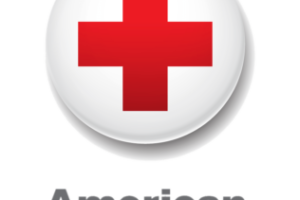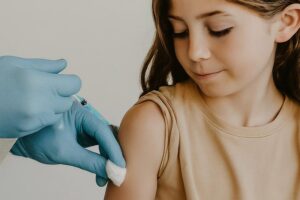 We’re about to begin the first normal (hopefully) school year since 2019-2020. We know what happened towards the end of that school year, with administrators informing teachers “You’ll be teaching from home next week, good luck!” I don’t mean to sound glib or place blame on the school leaders; we were all blindsided by what happened. Then, of course the pandemic restrictions continued into the 2020-2021 school year, with most local districts on, at best, a hybrid schedule. Difficulties continued even into the last school year, despite vaccines and antiviral treatments, and the CDC has only recently made the biggest change to its recommendations, basically admitting that Covid-19 is here to stay and we have to learn to safely live with it. This semester will be my first time teaching a class in person since 2019.
We’re about to begin the first normal (hopefully) school year since 2019-2020. We know what happened towards the end of that school year, with administrators informing teachers “You’ll be teaching from home next week, good luck!” I don’t mean to sound glib or place blame on the school leaders; we were all blindsided by what happened. Then, of course the pandemic restrictions continued into the 2020-2021 school year, with most local districts on, at best, a hybrid schedule. Difficulties continued even into the last school year, despite vaccines and antiviral treatments, and the CDC has only recently made the biggest change to its recommendations, basically admitting that Covid-19 is here to stay and we have to learn to safely live with it. This semester will be my first time teaching a class in person since 2019.
People at every age have had to deal with the impact of Covid, but the impacts have been different depending on our stage of life. For children and young adults, the issues have focused mostly on development and starting their lives. Children have missed out on some social experiences and learning, young adults have graduated and transitioned without the usual fanfare, and some have started jobs without going into an office. I had one young patient who got accepted to a college in another state — and then proceeded to complete the first three semesters of college online from his bedroom. I have another who started her first job but has barely met her coworkers. Indeed, when they did start going back to the office several employees got Covid and they took a step back. For a new hire fresh out of college, anxious about how she’s doing and worried about making mistakes, it helps to have a boss nearby for support, not miles away in another location.
My colleagues and I are all so busy that many of us are not taking new patients. The drawn-out nature of the pandemic has led to increases in anxiety, insomnia, negative coping strategies such as drinking too much or isolating out of fear, and depression. For some young people, getting back into the social scene has been difficult. And for some kids going off to college without having had a normal high school experience, it’s an even bigger adjustment than typical.
While I don’t encourage teens to break the rules, I do accept that they do and that it’s a normal part of development. They break the rules, their parents try to catch them and hand down a consequence. But with fewer social activities, there were fewer opportunities to engage in the type of teen mischief we all did in every generation. They then go off to college without having those experiences of pushing the envelope and finding out that bad behavior has consequences.
As we move into the new school year, have patience with your kids who may seem more anxious and cautious than usual. Give them opportunities to socialize more normally than they have the past couple of years and allow them that freedom to make mistakes. If your teen is off to college, understand the colleges are dealing with more “freshmen” than usual since the class of 2020 and 2021 might also still be adjusting to campus life since it was delayed for them.
I’m hoping that some things from the pandemic will stick with us, but overall, I think we are all ready for some return to normal. For kids at transitional ages, they are not sure what “normal” means anymore and may need support finding it again. That’s OK, we all do. The last two and a half years have been a blur for many of us with a lot of isolation and worry. Let’s hope were coming to the other side of it. It sometimes helps to remind ourselves that we all went through the stress of the pandemic and that it’s normal to have some discomfort coming back from it.
Barbara Kapetanakes Psy.D. practices psychotherapy in Sleepy Hollow.






